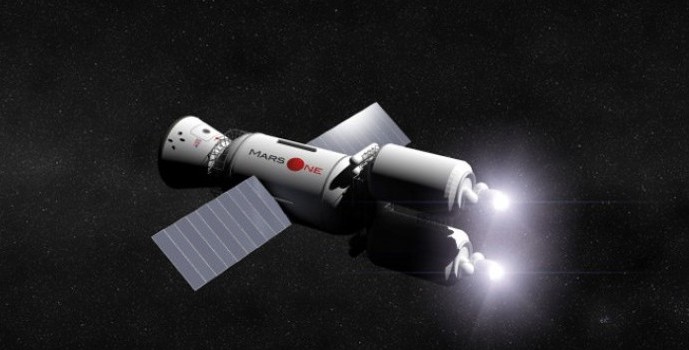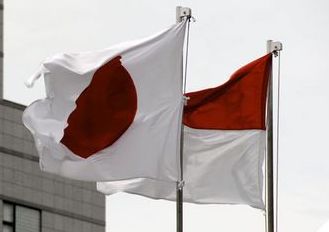
The first humans to land on Mars start their journey from Earth. An artistic illustration. Credit: Mars One
WASHINGTON (PTI): Mars One's ambitious mission to send four people to colonise the Red Planet in 2024, which includes three Indians among its 100 finalists, has been pushed back by two years.
Mars One, a Netherlands-based non-profit, aims to send four people on a one-way trip to the Red Planet every two years.
Three Indians, 29-year-old Taranjeet Singh Bhatia, who is studying computer science at the University of Central Florida, Ritika Singh, 29, who lives in Dubai, and 19-year-old Shradha Prasad from Kerala, are among the 100 finalists for the Mars mission announced last month.
Out of these 100 finalists, 24 will be trained to go to the Red Planet.
The company has now pushed its planned launch of the first humans to Mars back by two years. The four-member crew will now depart for Mars in 2026 and land near the outpost in 2027.
The delay was necessitated by a lack of investment funding, which has slowed work on a robotic precursor mission that Mars One had wanted to send toward the Red Planet in 2018, Mars One CEO Bas Lansdorp said.
The robotic mission aims to launch a lander and orbiter to Mars, to test out technologies needed for human settlement.
Mars One awarded contracts to aerospace firms Lockheed Martin and Surrey Satellite Technology to work on the lander and orbiter, respectively, SPACE.com reported.
"We had a very successful investment round in 2013 that has financed all the things that we have done up to now. And we have actually come to an agreement with a consortium of investors late last year for a much bigger round of investments," Lansdorp said in a recently released video.
"Unfortunately, the paperwork of that deal is taking much longer than we expected," Lansdorp said.
"I now think that it will be done before the summer of this year. That means that we will not be in time to finance the follow-up study that Lockheed Martin needs to do for our first unmanned mission in 2018, which unfortunately means that we will have to delay that mission to 2020," he added.
"Delaying our first unmanned mission by two years also means that all the other missions will move by the same period of time, having our first human landing now planned for 2027," he said.
In the video, Lansdorp also responded to an article critical of Mars One that Matter magazine posted last week.
In the article, astrophysicist Joseph Roche, a former Mars One astronaut candidate, alleges that the organisation has been picking its astronauts at least partly based on how much money they donate to the private colonisation effort.
Roche also said that Mars One's selection process is flawed. The article author Elmo Keep alleges that Mars One received just 2,761 applications from prospective Red Planet settlers, not the 202,000 claimed by the organisation.
Lansdorp disputes these assertions in the video, saying that money has nothing to do with the selection process, and that Mars One's numbers are accurate.
 Previous Article
Previous Article Next Article
Next Article













The Indian Air Force, in its flight trials evaluation report submitted before the Defence Ministry l..
view articleAn insight into the Medium Multi-Role Combat Aircraft competition...
view articleSky enthusiasts can now spot the International Space Station (ISS) commanded by Indian-American astr..
view article